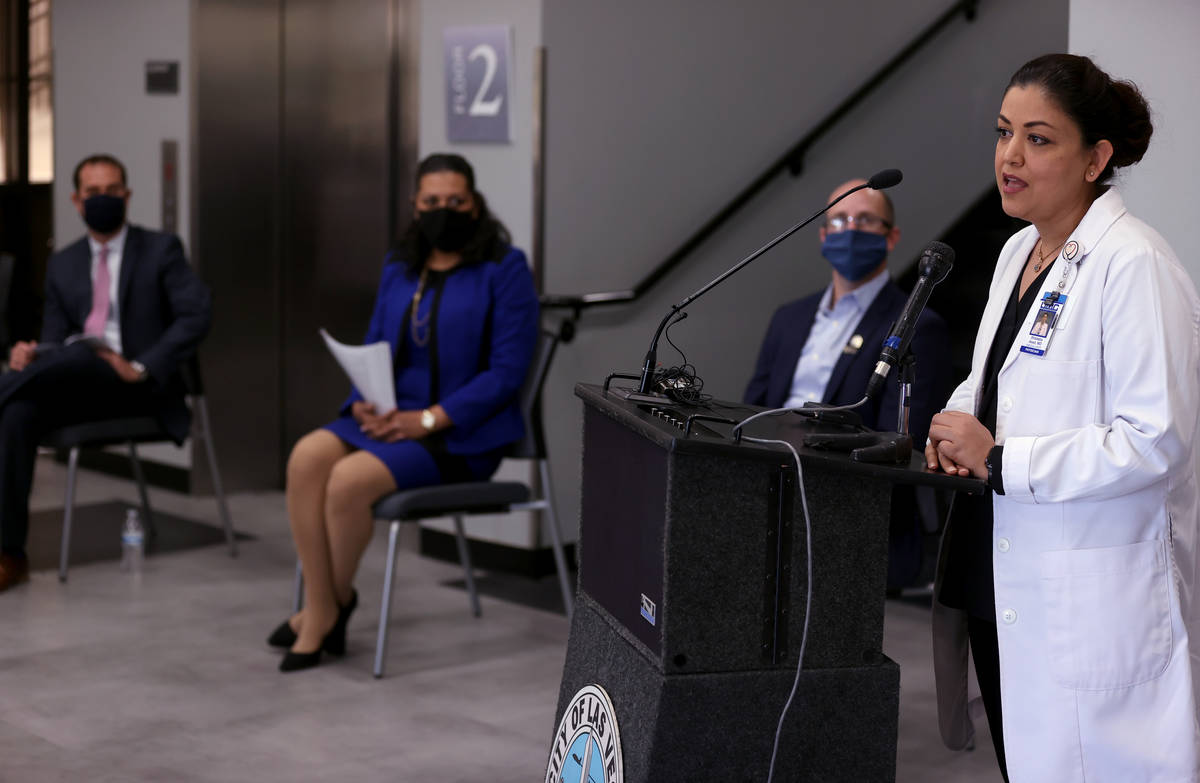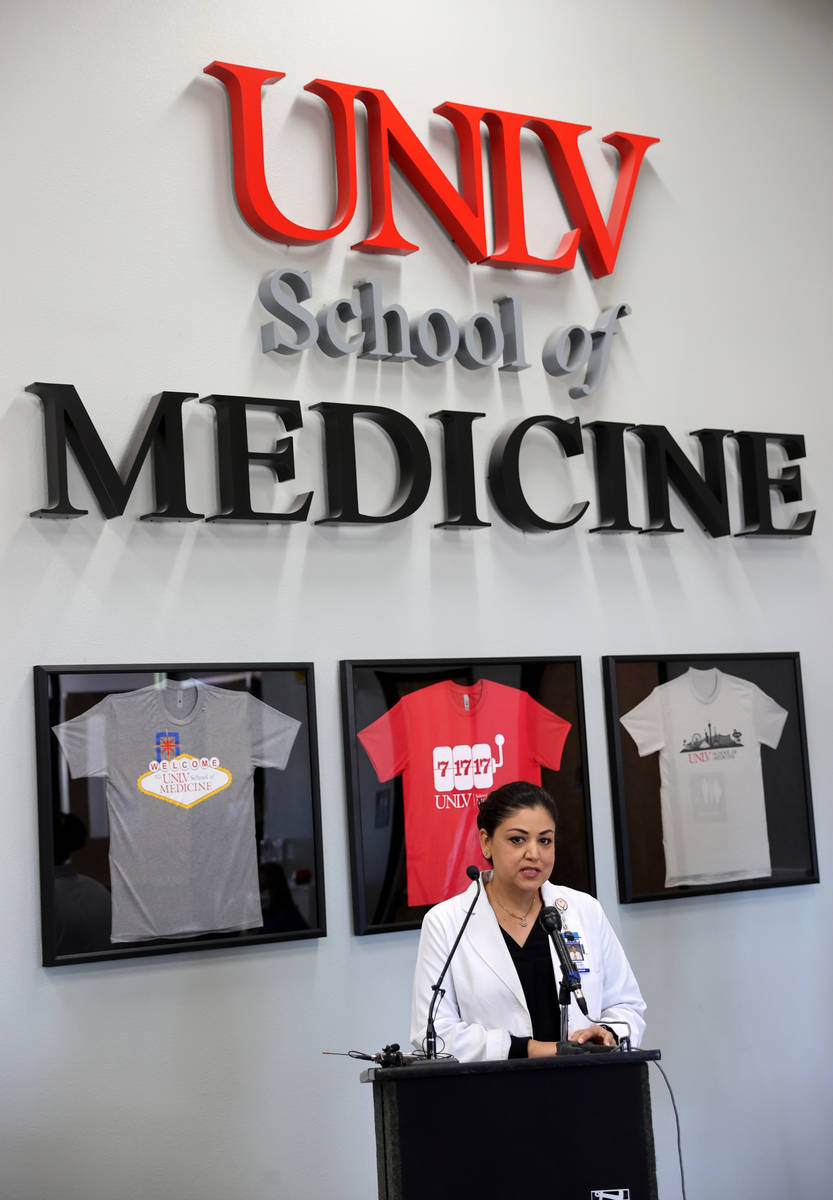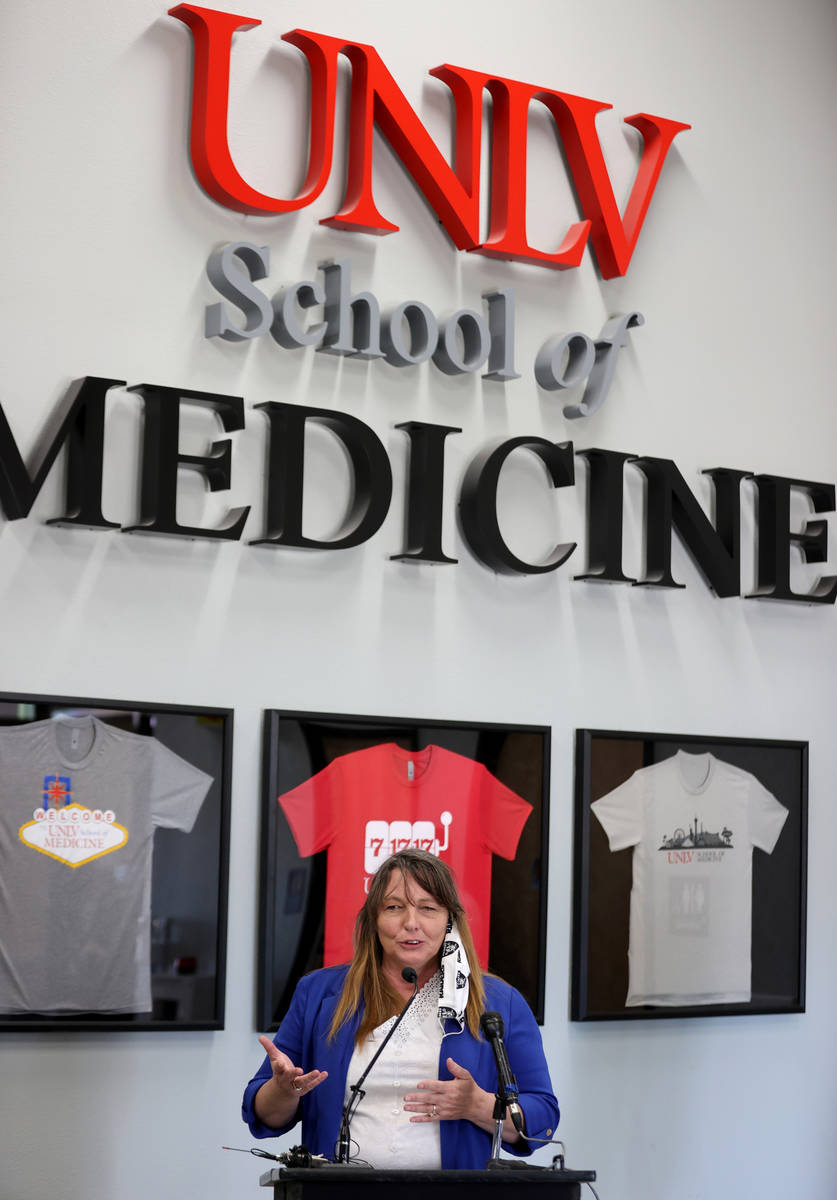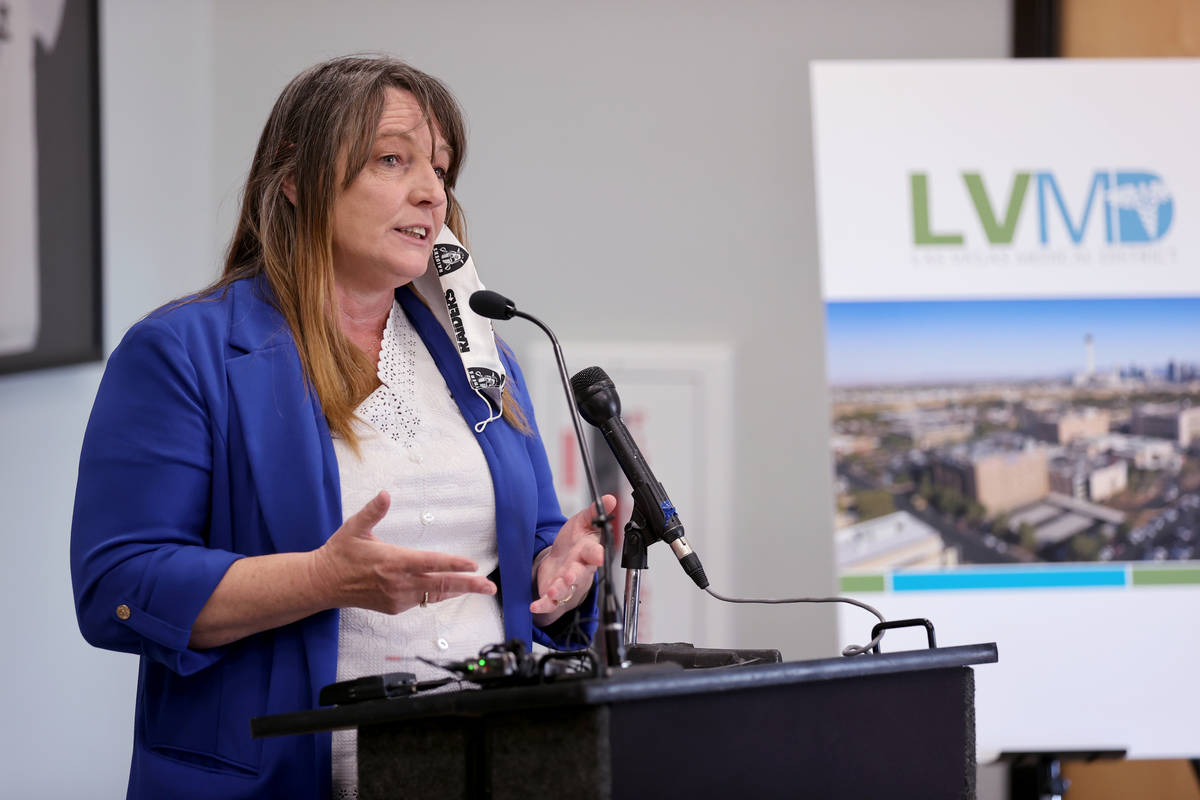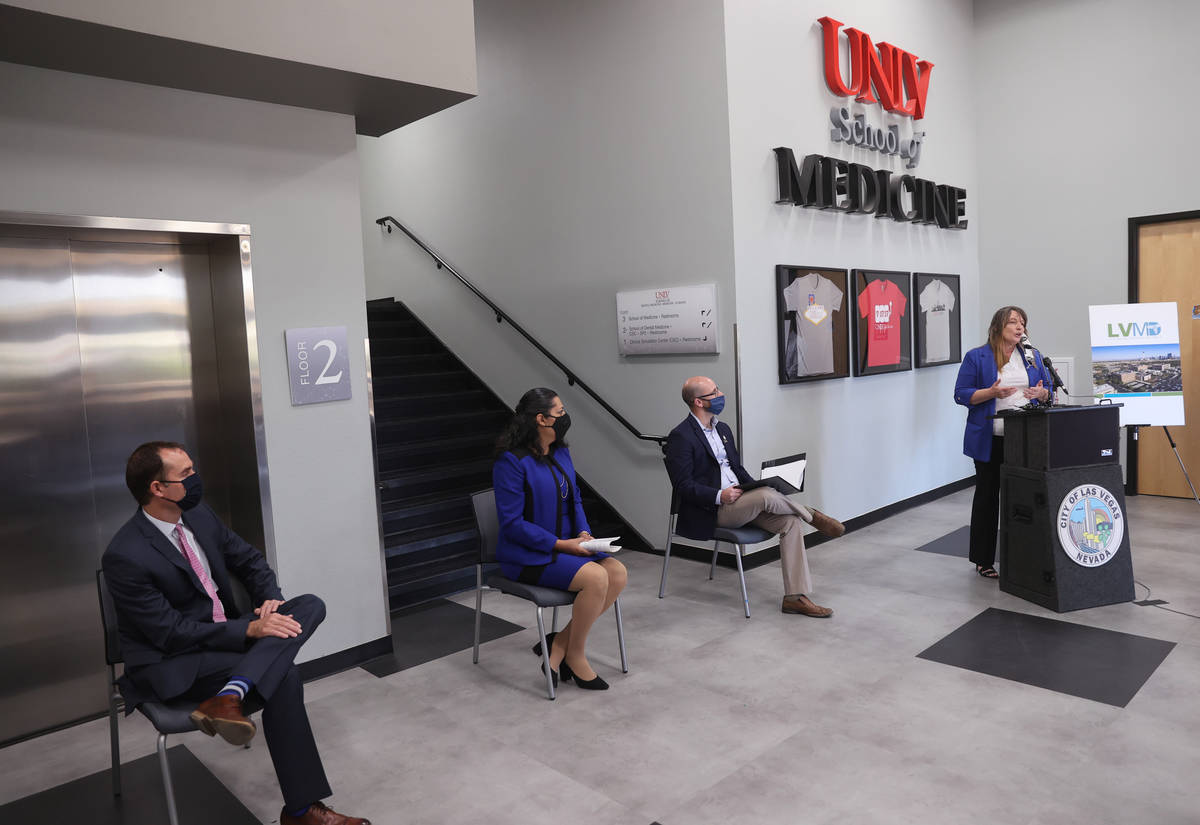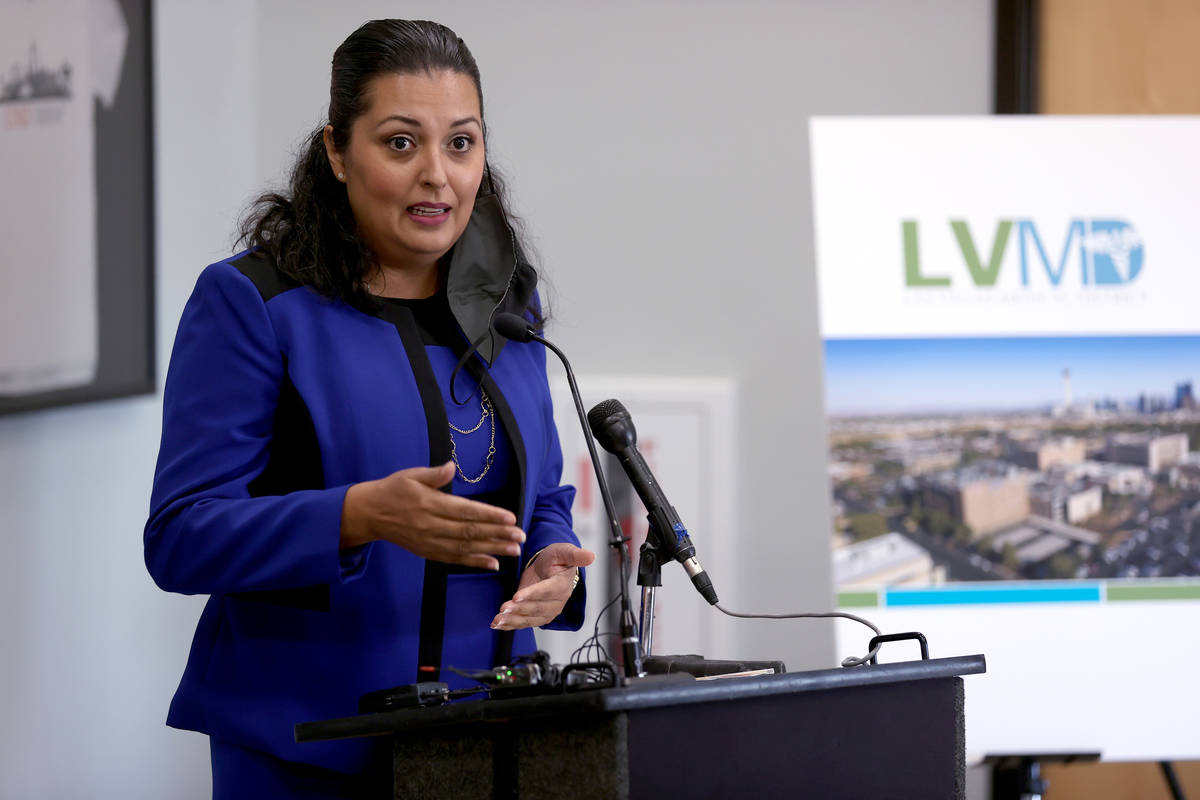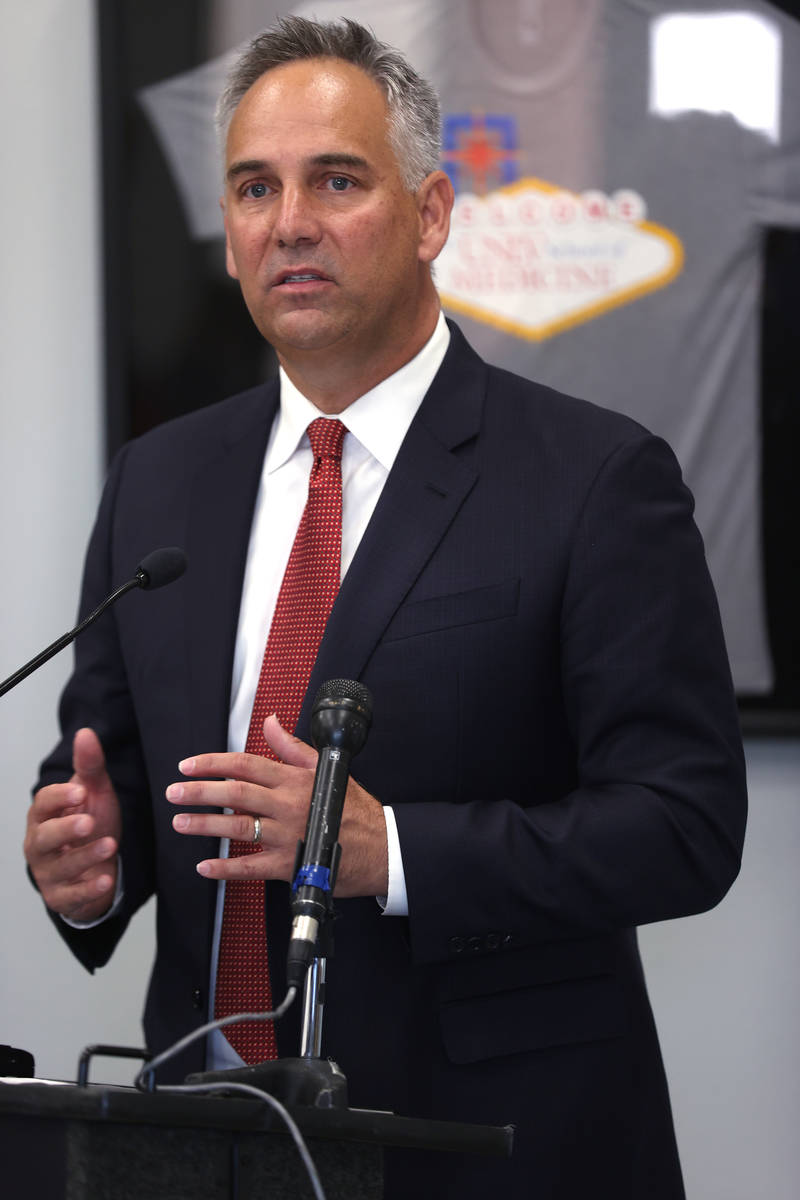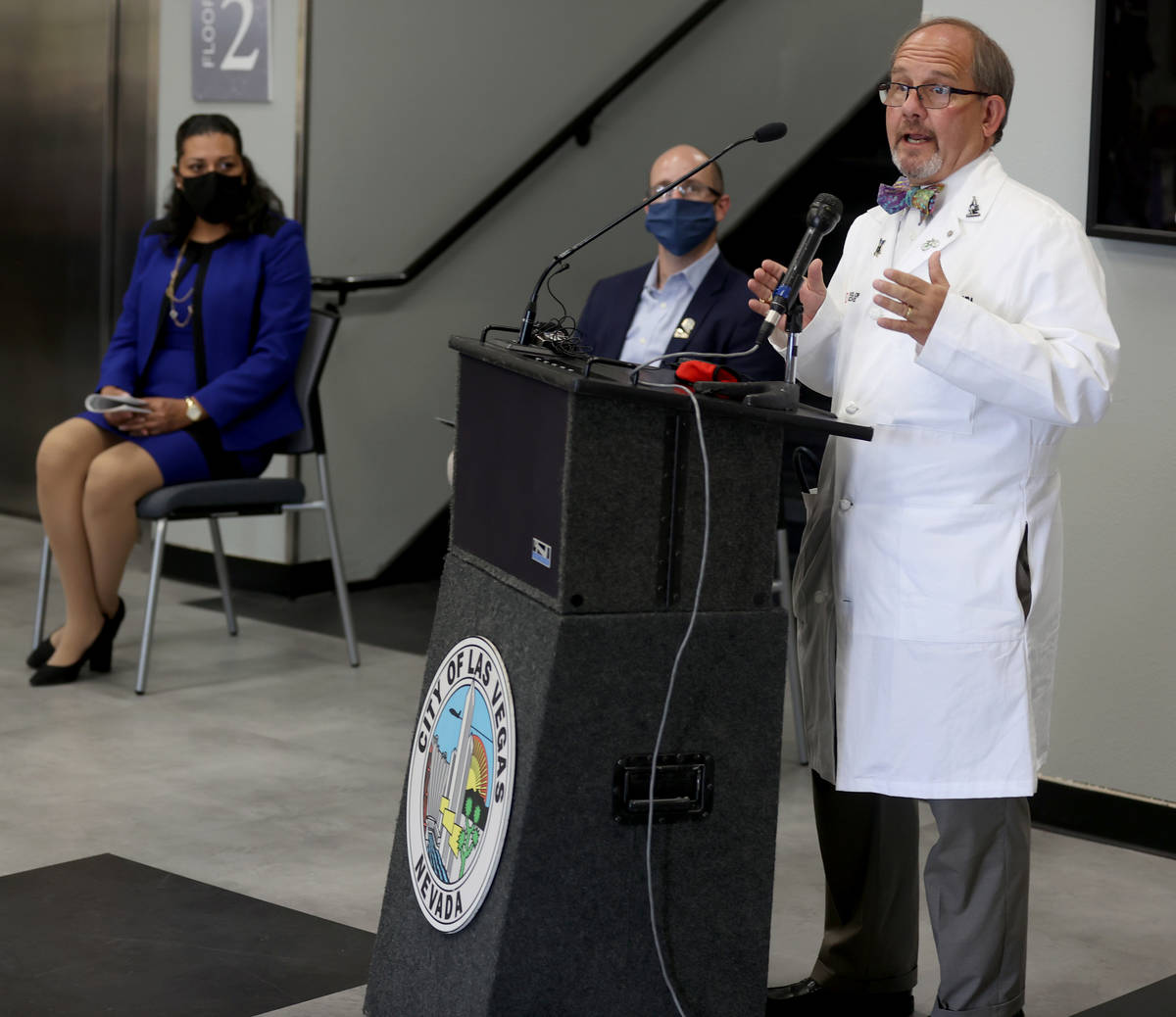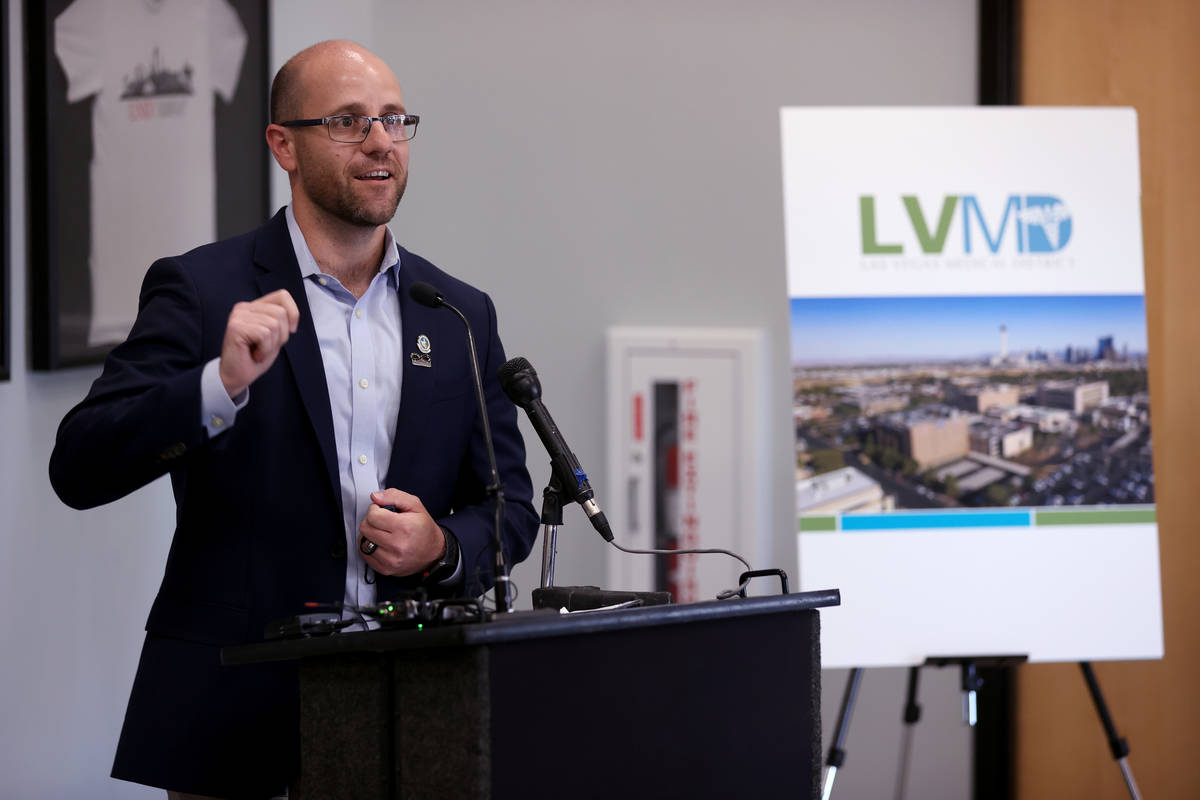Doctors: It’s safe to return to offices, hospitals
Dr. Shadaba Asad knows that the fear of going to the doctor during the pandemic is very real.
She knows because the fear has been a family affair.
After her husband’s grandmother, who was nearly 100, died from COVID-19 in Iran, Asad’s mother-in-law, in her early 80s, who lives in Las Vegas, refused for months to see her own doctor for treatment of diabetes and heart disease.
“The mental toll of this disease is very, very real,” said Asad, medical director of infectious disease at University Medical Center.
On Wednesday, Asad joined other medical professionals and local government leaders at a news conference aimed at reassuring an unnerved public that it is safe to return to the doctor, the dentist or the hospital.
During March and April, hospitals postponed elective surgeries to ensure there would be sufficient resources to treat patients with COVID-19. Public health authorities urged Nevadans fearful that they had contracted the virus, but not seriously ill, to stay home and avoid crowding emergency rooms.
“During that time, staying home, staying healthy for Nevada, was effective, and I truly believe it saved lives in our state,” said Mason VanHouweling, the medical center’s CEO.
As the state began to reopen, hospitals in May resumed elective surgeries. “Since then we’ve done hundreds of surgeries, cutting-edge robotic surgeries, life-changing orthopedic and joint replacements, valuable diagnostic and comprehensive oncology services, and many, many others,” VanHouweling said, all with an emphasis on safety.
Safety protocols at the county hospital, for example, include medical screening, temperature-taking and hand-sanitizing before entering a facility, mask-wearing by everyone, and COVID-19 testing for all admitted patients.
Physical, financial tolls
Asad expressed concern that by avoiding the doctor’s office, patients with chronic conditions may be doing themselves irreparable harm. Untreated diabetes, for example, puts a patient at risk of complications that could result in a lower-limb amputation.
Patients are continuing to postpone treatment for emergency conditions, said Claude Wise, CEO of Valley Hospital Medical Center, noting that the volume of stroke patients is down 30 percent.
“We know people might be scared and afraid to go visit their physician or hospital provider,” Wise said. “But we are safe, we are ready.”
The Southern Nevada Health District “cannot confirm that cases of COVID-19 have been transmitted to patients in hospitals or medical practices,” according to spokeswoman Stephanie Bethel. She said exposures were possible but that health care providers had done “a very good job of preventing the spread of illness in their facilities.”
The Centers for Disease Control and Prevention does not have data that granular, a spokeswoman said.
The pandemic has also taken a financial toll on hospitals and medical practices.
In the first couple of months of the local outbreak, patient volumes at the medical center and its clinics declined by two-thirds and are still down by 40 percent, VanHouweling said. Before the outbreak, the public hospital had projected $11 million in earnings for the current fiscal year ending this month. It now predicts a $200 million loss, due not only to lower patient volumes but also higher costs that include treating more uninsured patients as unemployment has skyrocketed.
Dr. Marc Kahn, dean of UNLV’s School of Medicine, said that patient volumes at UNLV Medicine dropped by about 30 percent and remain down by about 15 percent.
“As you’ve heard from our hospital representatives, the hospitals are doing all they can to make sure that they’re safe, which they are,” Khan said. “And now it’s time, really, for people to start taking care of themselves.”
Mustering courage
Asad’s mother-in-law in recent weeks “finally mustered the courage” to go see her doctor. “And, fortunately, everything was fine. But it was a huge relief to actually get checked and to make sure that her blood work was good,” Asad said.
She cautioned, too, that people with uncontrolled diabetes, heart disease and lung disease often are most affected by the coronavirus.
“And that is all the more reason why you must go to your doctors, must go to your hospital and take care of these medical problems.” Asad said. “Not tomorrow, not next week, not next month. But right now, and today.”
She also urged people to ask questions of doctors, nurses and nonmedical staff to ease their minds.
Las Vegas City Councilman Brian Knudsen said the Las Vegas Medical District, which put on the news conference, is launching a print, radio and digital campaign in both English and Spanish to encourage people to call their doctors to make appointments. The Medical District is a cluster of hospitals, clinics and UNLV’s medical school just west of downtown Las Vegas.
Contact Mary Hynes at mhynes@reviewjournal.com or 702-383-0336. Follow @MaryHynes1 on Twitter.



